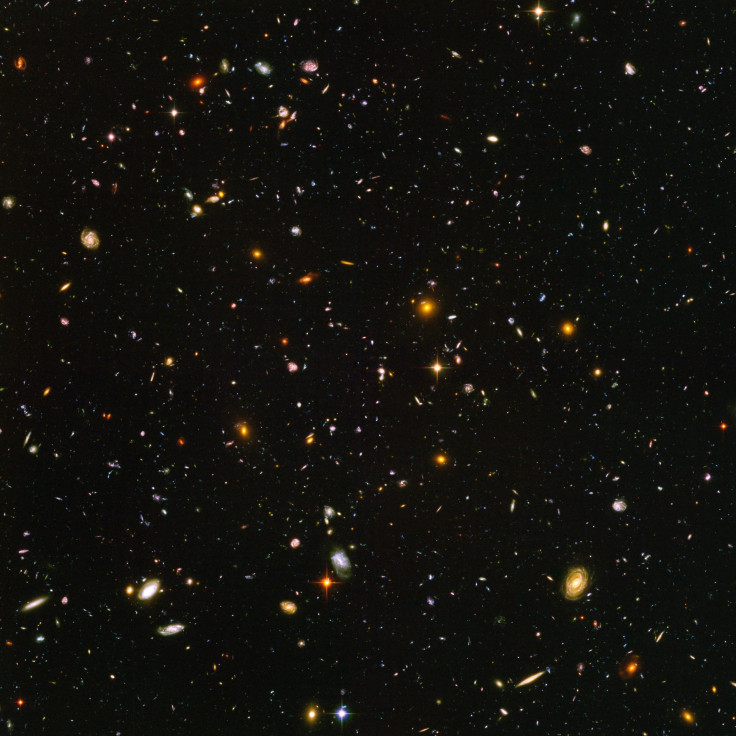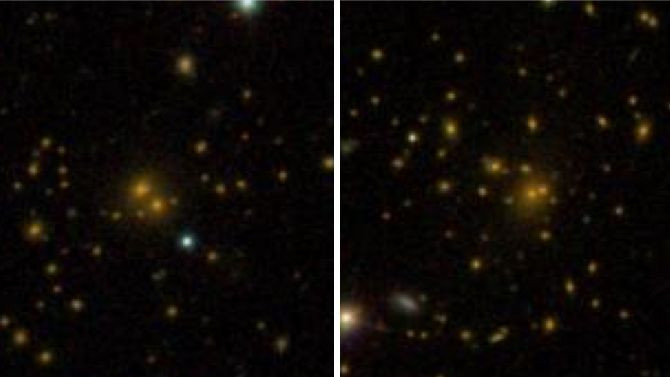Giant Magnetic Ridge Connecting Galaxy Clusters Discovered

In a first, a team of astronomers have discovered a magnetic ridge that stretches out 10 million light-years and connects two merging galaxy clusters.
A team of astronomers led by Federica Govoni at the Italian National Institute for Astrophysics who discovered it say the "ridge" is believed to be part of the cosmic web. The cosmic web marks the distribution of dark matter, which can only be detected by its gravitational pull.
The team used LoFar, a low-frequency radio telescope which consists of 25,000 antennas across 51 locations, to detect the ridge of low-frequency radio emission extending between the two galaxy clusters. The researchers spotted a "faint, diffuse and extended radio source" between the clusters -- these spaces have dimmer energies than the clusters themslves and are hence harder to study.
“This is direct evidence of the presence of magnetic fields and relativistic particles in filament connecting these two systems,” said Govoni.
Scientists describe galaxy clusters as enormous structures that are made up of thousands of galaxies. Observations made so far with telescopes show a halo of radio emission in the central areas of some clusters.
But this new discovery would suggest that the intergalactic highways are also "paved with matter." Govoni revealed that up to now, a magnetic field has never been observed in the filaments connecting clusters. Govoni described the discovery as "extraordinary."

“Galaxy clusters form at the intersections of the cosmic web filaments and grow by accreting substructures in a merging process,” Govoni said.
“Our group had discovered that both clusters have a radio halo," Govoni said. "More recently, the European Space Agency’s Planck satellite has shown that the two systems are connected by a thin filament of matter. The presence of this filament stimulated our curiosity and prompted us to investigate whether the magnetic field could extend beyond the centre of the clusters, permeating the filament of matter that connects them.”
© Copyright IBTimes 2024. All rights reserved.











